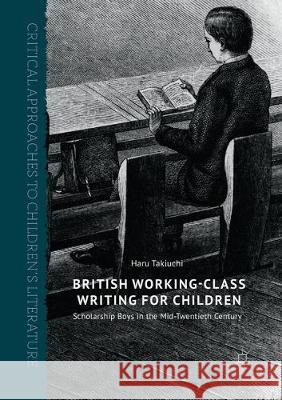British Working-Class Writing for Children: Scholarship Boys in the Mid-Twentieth Century » książka
topmenu
British Working-Class Writing for Children: Scholarship Boys in the Mid-Twentieth Century
ISBN-13: 9783319856476 / Angielski / Miękka / 2018 / 218 str.
British Working-Class Writing for Children: Scholarship Boys in the Mid-Twentieth Century
ISBN-13: 9783319856476 / Angielski / Miękka / 2018 / 218 str.
cena 363,12
(netto: 345,83 VAT: 5%)
Najniższa cena z 30 dni: 346,96
(netto: 345,83 VAT: 5%)
Najniższa cena z 30 dni: 346,96
Termin realizacji zamówienia:
ok. 22 dni roboczych
Bez gwarancji dostawy przed świętami
ok. 22 dni roboczych
Bez gwarancji dostawy przed świętami
Darmowa dostawa!
Kategorie:
Kategorie BISAC:
Wydawca:
Palgrave MacMillan
Seria wydawnicza:
Język:
Angielski
ISBN-13:
9783319856476
Rok wydania:
2018
Wydanie:
Softcover Repri
Ilość stron:
218
Oprawa:
Miękka
Wolumenów:
01











